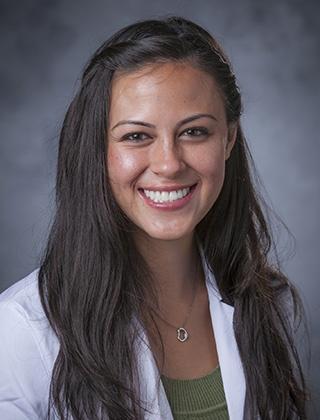New Models for Treating Chronic Disease
Many of my patients come to the doctor because they want to feel well. Though I can treat an ear infection or modify insulin regimens, “wellness” is complex.
The majority of conditions I see are chronic and preventable — including heart disease, type 2 diabetes, obesity and arthritis. Chronic disease is best addressed in our communities by the people with a deeper understanding of an individual’s personality, strengths, challenges and environment.
When patients tell me about a pastor who provides career and life counseling, a child who encourages them to walk together every day, or a friend who helped them find a career that better suits their strengths, I want to tell them: This is public health.
When my dad volunteers as a Spanish interpreter for legal services or develops vaccines for livestock, or when my sister inspires her students to try a new sport or encourages them to see that the whole world is their oyster: This is public health.
If I were to reflect on my own health, the greatest healers in my life might be the yoga instructors who taught me how to retrain my daily awareness, my immigrant parents who showed me education is the key to freedom of choice and opportunity, or the friend who saw potential in me when I did not see it in myself.
As the distribution of disease in the United States shifts toward chronic conditions, our health care system has lagged in restructuring our re-active approach to disease. I frequently see patients frustrated that they have come to us to regain functionality, energy and health but receive only “bandaids” for their arthritic pain, fibromyalgia or struggles with weight loss. I believe that the solution is complex and lies somewhere between the doctor’s office and the community.
In a short visit, I do my best to understand the big picture, the patient, failed treatments, their burden of disease, and how to meet that individual where they are. I turn to websites, local organizations and educational resources hoping something will stick, but can’t help feeling that my approach is futile and primitive.
In an era of growing data collection and emerging health technology, I continue to see immense potential to invent creative solutions to address chronic conditions in our communities.
As patients become empowered to take charge of their own health, some have found more success in managing health care issues through online patient forums, over-the-counter supplements, DNA or home lab kits, and consumer-focused apps or websites. As someone who has found more success in managing my own health by watching videos on YouTube, listening to expert podcasts and using apps to manage my behavior, I see enormous potential in embracing different forms of delivering care. With patient portals, I can field many questions electronically without needing a doctor’s visit. Yet, this is not reimbursed by health insurance companies.
Our current reimbursement system rewards procedures and interventions over thoughtful conversations and preventive measures. Despite our large investment in the health care industry, we are not healthier for it. As we are moving toward value-based care, I fear that we will penalize physicians for health outcomes that are not most influenced by the quality of individual care but by the quality of community-based interventions.
If we want to be a truly healthier nation, this will require reconceptualizing how we think about health and healers. Trained in biostatistics, public health and family medicine I am eager to work with our policymakers, our researchers and our communities to rethink our approach to chronic disease management.
Anna Afonso is a second-year resident with the Duke Family Medicine Residency Program. Email anna.afonso@duke.edu with questions.
Editor’s note: Duke Family Medicine residents guest blog every month. Blogs represent the opinion of the author, not the Duke Family Medicine Residency Program, the Department of Community and Family Medicine or Duke University.
